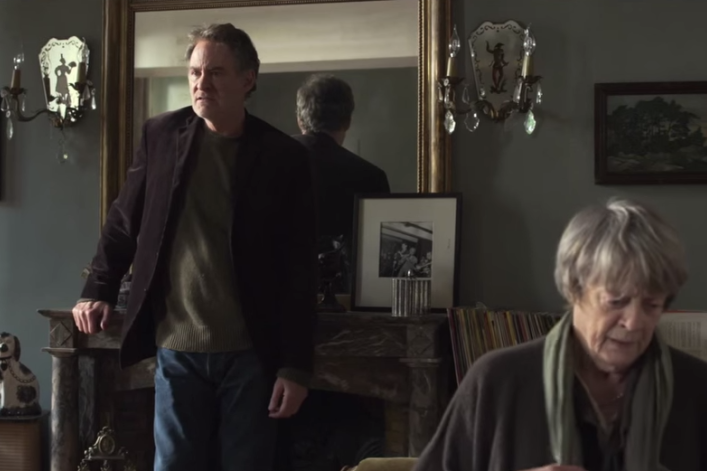Does France have the solution for cash-strapped NYC buyers?

It seems like the kind of elaborate obstacle that only ever exists in the movies: man inherits apartment, only to find it's got an elderly tenant, who gets to stay in the apartment for life—and to whom he's contractually obligated to pay a monthly fee. But the seemingly outlandish plot of My Old Lady, a film starring Kevin Kline and Maggie Smith, is actually based on the very real "viager" system in France, in which an individual can buy an occupied apartment by paying the (usually elderly) owner a stipend every month until their death. The buyer is required to pay a down payment—or "bouquet"—of around 30 percent of the total sale price; the size of the monthly payments is determined in part by the seller's age.
[This story was originally posted in September 2014 and updated in March 2017.]
It's an arrangement that can carry serious benefits on both sides: For the seller, a steady income and a guaranteed place to live for life, and for the buyer, an investment property at a steep discount. According to French-English newspaper The Connexion, properties sold in a viager arrangement generally go for 50 percent of their full value, even when the monthly payments are factored in. Of course, there's an obvious element of risk here, with the buyer having to send a monthly fee for decades if the seller has a long life, essentially paying more for the apartment. Plus, miss a payment and the deed reverts back to the seller, no matter how much one has put into the place. In any case, it's a studied speculation.
Naturally, this whole thing got us to wondering: Would this ever work in New York City? Turns out, it would. We ran it by Dean Roberts, a real estate attorney at Norris McLaughlin & Marcus (and a Brick Underground sponsor), who tells us that the whole viager set-up is pretty close to the stateside system of life estate sales. Similar to a viager, with a life estate sale, the buyer agrees to take over the property after the seller dies, and in the interim, the seller is able to simultaneously occupy the apartment and capitalize on its value for the rest of their days. Since this is essentially a contract drawn up between two people and their attorneys (rather than a more traditional sale), there's some flexibility with payment style: the buyer can pay the seller either in a lump sum, a series of payments, or a combination of the two, depending on what works best for everyone involved. It's not common in New York, says Roberts, but there's no reason it couldn't be: "You just have to lawyer it the right way," he says.
The similar, more common scenario in New York is to buy an "investment" apartment with a rent-stabilized tenant currently in place. In this case, it's typical for the new owners to either negotiate a buyout or "live in fear that a relative doesn't move in" and take over the rent-stabilized lease, further pushing back the buyer's move-in date, Roberts notes. It's also unfortunately typical for landlords to harass (or neglect) the stabilized tenants into vacating.
But back to the life estate sales: If the opportunity presented itself, would you do it? Granted, it's more than a little morbid to have a written contract saying you'll benefit from a stranger's death, and the thought of waiting a decade (or two) to move into your own home is daunting. But on the flip side, it could be a way for those of us who don't have a lot of cash saved up to get into the city's insane market. And this kind of set-up could be a boon for house-poor longtime residents (the likes of whom often settle for predatory buyouts and are forced to move). Maybe the French are onto something?
You Might Also Like





























